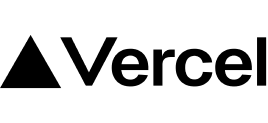A home away from the office
If you’ve ever searched for property, there’s a good chance you’ve come across an REA Group platform. In Australia, REA Group operates leading residential property website realestate.com.au, which is used by 12.7 million Australians on average each month. Or, 62% of Australia’s adult population.
REA Group’s purpose is to change how the world experiences property.
Individual teams chose Slack as early as 2014; appreciating the ease of communication and sharing updates around deployments. Two years later, Slack was rolled out as one of the brand’s official enterprise tools. Today, Slack is embedded into the company’s culture, providing a space to collaborate, connect, spark innovation and get work done.
“Slack plays a key part in the moments that matter at REA Group, from our annual kickoff meeting to monthly town halls and—our favourite—hackathons,” says Toby Borella, REA Group’s Tech Product Lead.
“We’ve used Slack for so long that it’s central to how we operate and communicate. Slack gives us that flexibility to connect with team members, no matter where they are,” says Kimi George, Lead Business Analyst at REA Group.

“We've used Slack for so long that it's central to how we operate and communicate. Slack gives us that flexibility to connect with team members, no matter where they are.”
Getting work flowing, using workflows
One thing that REA Group’s employees appreciate most about Slack is its ability to streamline communications and free up more time for high-impact work.
Slack Workflows empower teams to simplify processes in a matter of minutes without having to switch between apps. REA Group is currently using more than 120 of these workflows.
“Workflows have been popular from day one,” says Borella.
“They’re incredibly easy to create, so when someone sees an opportunity to simplify processes, they can create one themselves.”
Workflow building is also a valuable tool in REA Group’s recruitment and onboarding process. When a new-starter joins a specific channel, a workflow is triggered to deliver the necessary information they need to settle in. This could include job-specific documents, helpful contacts and resources and overviews of team rituals.
Slack is part of the onboarding experience before new employees even walk through the doors of REA Group, says Alana Shepherd, REA Group’s Executive Manager of People Agility.
“We use Slack to pre-board them, introduce them to the rest of the team, and connect them with the information they need to hit the ground running,” she says.

“Three out of four people say they are as effective working in a distributed mode as they are in an office. And a huge part of this effectiveness is the ability to remain connected in Slack, and be able to have the conversations that they would normally have in person.
Unifying work with integrations and channels
One of today’s biggest barriers to employee productivity is context switching. In fact, according to Future Forum, 68 per cent of employees spend at least half an hour each day switching between apps. Navigating a sea of notifications is not only overwhelming, but also adds up to a lot of unnecessary busywork. Over half of Future Forum’s survey respondents said that switching between apps made it harder to get essential work done.
REA Group uses Slack Integrations—which allows companies to integrate commonly-used software and custom apps right into Slack – to start calls, schedule meetings, resolve tickets and answer questions all in one place.
The company currently has around 100 apps —like PagerDuty, Culture Amp and Trello—integrated into its Slack workspace. For example, if there is a building evacuation, REA Group’s wardens can use custom emojis and the PagerDuty integration to respond and share real-time updates with the team.
And it’s not only real-time communication that becomes easier with integrations; users even have the option to host stand-ups asynchronously.
“[Asynchronous stand-ups] mean we can free up some of that face-to-face time,” says Shepherd.
“It’s also allowed us to reach every team member, no matter their time zone. This means we all feel connected and are clear on what we’re working on and what we need from each other.”

REA Group also uses integrations to connect with 70 external partners too. By moving conversations out of siloed email threads and into a collaborative space, Slack Connect allows employees to develop closer relationships with partners and stakeholders.
“Having real-time communication is so much easier than email,” says Borella.
“Email can be disconnected and take a lot longer to get anything done.“
Slack Channels are also invaluable for bringing order and clarity to the flow of information, he says.
“Channels create greater transparency and opportunities for learning. No matter how our team evolves and changes, we’ve got all our past information in one spot, which helps us make decisions to improve future projects.”
Enabling two-way conversations, wherever employees are
Building a culture across geographies and time zones is no easy task. With one-quarter of REA Group’s employees distributed and many more following a hybrid work arrangement, it’s crucial the company opens up two-way conversations so every employee has a voice.
“I don’t think we could have transitioned to an effective hybrid model without Slack,” says Shepherd.
“Three out of four people say they are as effective working in a distributed mode as they are in an office. And a huge part of this effectiveness is the ability to remain connected.
“Our culture comes to life on Slack, whether it’s through the emojis that represent our values, our transparent communication or even hosting webinars directly on Slack.”
The company also uses Slack to host its ‘hack days’, which they call REA.io, where employees work in multidisciplinary teams and collaborate on an idea of their choice.
Previously, only employees based in Melbourne could participate. But now, hack days are a virtual event, enabled by Slack.
“Slack meant we could open up hack days to interstate and international offices. And some of the learnings from this have informed how we plan future virtual events,” says George.

“If someone told me they were rolling out Slack, firstly I’d congratulate them. Then, I’d tell them to prepare to receive fewer emails and more emojis.”
Making work more pleasant, one emoji at a time
Slack plays an important role in REA Group’s mission to maintain its award-winning company culture in the new world of work. Social events and water cooler conversations have moved online, and Slack gives employees a chance to express their personalities at work, wherever they’re working.
“Unlike email, which is a one-way conversation, Slack opens up the conversation so people can react to news and updates, gain insight behind decisions and have their say on company-wide matters,” says Shepherd.
Employees share victories and learnings with their colleagues and are encouraged to update their statuses to celebrate personal milestones and occasions.
REA Group has even been able to add a personal touch by creating custom emojis representing its guiding values.
These emojis are a welcome replacement for endless email chains, says Borella.
“If someone told me they were rolling out Slack, firstly, I’d congratulate them. Then, I’d tell them to prepare to receive fewer emails and more emojis.”















